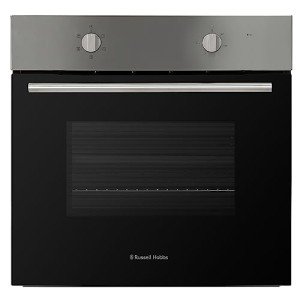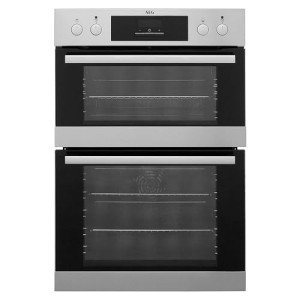Three Reasons Why Your Oven Built In Is Broken (And How To Repair It)
페이지 정보
본문
The Rise of Built-In Ovens: A Comprehensive Guide
In the world of modern-day kitchens, built-in ovens have actually carved a specific niche for themselves, changing both the performance and visual appeal of culinary areas. This short article looks into the numerous benefits of built-in ovens, their installation factors to consider, and a contrast with standard freestanding designs.

Understanding Built-In Ovens
Built-in ovens are created to be integrated perfectly into kitchen cabinetry, providing a smooth and sophisticated look. Unlike freestanding designs, which sit on the flooring, built-in ovens are installed at eye level or under countertops, making them ergonomic and easy to access.
Kinds Of Built-In Ovens
Built-in ovens been available in several types, each catering to different cooking needs and preferences. Here's a quick introduction:
- Single Noiseless built In ovens-In Oven: Ideal for smaller cooking areas, providing adequate cooking area for many needs.
- Double Built-In Oven: Offers separate compartments for cooking, best for bigger families or those who often entertain guests.
- Steam Ovens: Utilizes steam cooking for healthier meals, retaining nutrients and moisture.
- Convection Ovens: Equipped with fans to distribute hot air evenly, making sure quicker and more consistent cooking.
| Type | Description | Best for |
|---|---|---|
| Single Built-In | One spacious oven compartment | Small households |
| Double Built-In | Two compartments for synchronised cooking | Large families |
| Steam Oven | Steam-based cooking approach | Health-conscious cooks |
| Convection Oven | Fan-assisted cooking for even heat distribution | Those who bake frequently |
Advantages of Built-In Ovens
Aesthetic Appeal
Built-in ovens offer a streamlined, integrated hob and oven appearance that boosts the overall appearance of a kitchen. They come in various styles and surfaces that can complement existing kitchen cabinetry and decoration, creating a streamlined and cohesive look.
Area Efficiency
Designed to fit seamlessly into kitchen designs, built-in ovens can save important floor space, making them perfect for smaller sized cooking areas. By saving space, homeowners can take advantage of extra storage options or more counter space for food preparation.
Ergonomics
Installing ovens at eye level eliminates the need to flex down, minimizing pressure when examining food or removing hot meals. This ergonomic advantage is especially beneficial for individuals with mobility difficulties.
Adaptability
Built-in ovens typically include a range of cooking modes and features, from convection cooking to self-cleaning choices, providing users versatility in their cooking methods.
Energy Efficiency
Modern built-in ovens are usually created to be more energy-efficient than conventional designs. Features such as much better insulation and advanced heating components help decrease energy consumption.
Setup Considerations
While the benefits of built-in ovens are significant, particular aspects require to be thought about before going with this kitchen upgrade:
Space Requirements: Built-in ovens need specific area measurements in terms of width, height, and depth. Accurate measurements should be taken into account to prevent setup problems.
Electrical and Gas Hookups: Built-in ovens may need specific electrical wiring setups or gas connections. Certified specialists must handle this setup to guarantee safety and compliance with local codes.
Cabinetry Compatibility: The style and structure of existing cabinetry must be evaluated. Built-in models might require modifications to cabinetry, or brand-new cabinetry may require to be developed to accommodate them.
Cost: Built-in bulit-in ovens usually come at a premium rate compared to freestanding models. House owners need to assess their budgets accordingly and consider long-lasting benefits.
Setup Steps
Below are the fundamental steps associated with installing a built-in oven:
- Preparation: Measure the area and eliminate old appliances if required.
- Electrical/Gas Setup: Ensure the necessary electrical or gas connections are ready and checked for compliance.
- Cabinet Adjustment: Modify kitchen cabinetry as required to fit the built-in oven.
- Positioning: Carefully position the oven into the designated area and level it.
- Connection: Connect the oven to power or gas and ensure all fittings are protected.
- Testing: Turn on the oven to guarantee it runs correctly.
Often Asked Questions (FAQs)
1. Are built-in ovens easy to set up?
While standard setup can be managed by a useful person, it is a good idea to employ a professional, specifically when handling electrical or gas fittings.
2. Can I replace my freestanding oven with a built-in oven?
Yes, noiseless Built in ovens but it will need mindful measurement and perhaps some modifications to your existing cabinetry to fit the built-in design.
3. How do built-in ovens impact kitchen resale worth?
Built-in ovens can enhance a kitchen's appeal, often making it more appealing to potential purchasers, consequently supporting a greater resale value.
4. Are built-in ovens more expensive than freestanding designs?
Normally, built-in ovens are more expensive due to their style and features. However, their improved aesthetics and performance may justify the cost for lots of house owners.
5. What are the best brands for built-in ovens?
Some recognized brands consist of Bosch, Miele, KitchenAid, and Electrolux, each known for their quality and innovation.
Built-in ovens represent a considerable leap in built oven kitchen innovation, offering a mix of style, performance, and performance. While they need careful consideration relating to area, setup, and expense, the benefits they provide make them an attractive choice for modern property owners. Whether upgrading an existing kitchen or designing a brand-new one from scratch, built-in ovens can raise the cooking experience and enhance overall kitchen aesthetic appeals. From performance to elegance, they truly embody the best of contemporary cooking services.


